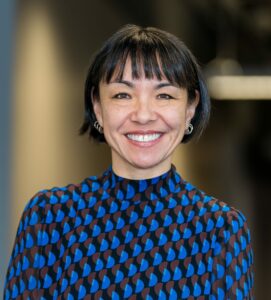
Welcome to the Office of the Equity, People and Culture (EP&C) website.
The division of Equity People and Culture was established to help the University achieve its vision of and support the University’s Academic Plan that champion diversity and inclusivity and how the institution, relates with people, especially those who are traditionally underrepresented. This Strategic Communications plan will further York’s commitment to Decolonization, Equity, Diversity, and Inclusion (DEDI). DEDI is central to our core values and builds on our strengths for our institution.
The leadership team includes the Assistant Vice-President (AVP) Labour Relations, AVP Human Resources and CHRO, the Centre for Human Rights, Equity, and Inclusion (CHREI), Associate Vice-President (AVP) Indigenous Initiatives, AVP Faculty Affairs. The team works to ensure that York’s employees, culture, and equity principles are key considerations in the University’s strategy, priorities, and policies. The team leads employee engagement from well-being to labour relations, recruitment education, (anti-black racism, decolonization, DEDI strategy, Indigenous Initiatives)
York is aiming to create more equitable, diverse and inclusive communities. The University’s Academic Plan 2020-2025 outlines York’s commitment to an enduring and distinctive set of core values that champion diversity and inclusivity, embrace differing perspectives, peoples, and ways of knowing, and foster global fluencies and cross-cultural knowledges.
Laina Y. Bay-Cheng is Interim Vice-President of the Division of Equity, People & Culture and Professor in the Department of Psychology at York University. She joined York in August 2022 as the inaugural Associate Vice-President, Faculty Affairs. Prior to that, she spent 17 years on faculty at the University at Buffalo School of Social Work, serving as PhD Program Director and then Associate Dean for Faculty Development. As a scholar, Bay-Cheng concentrates her research on the imprint of social forces and material conditions on young women's sexual lives. She combines empirical and conceptual analyses to shift attention away from individual-focused models of sexual risk and toward the systemic roots of youth sexual vulnerability: interlocked gender-, class-, race-, and age-based oppression and the ideologies that perpetuate them. She is grateful for her undergraduate education at Wellesley College and doctoral training with Dr. Abby Stewart at the University of Michigan.
